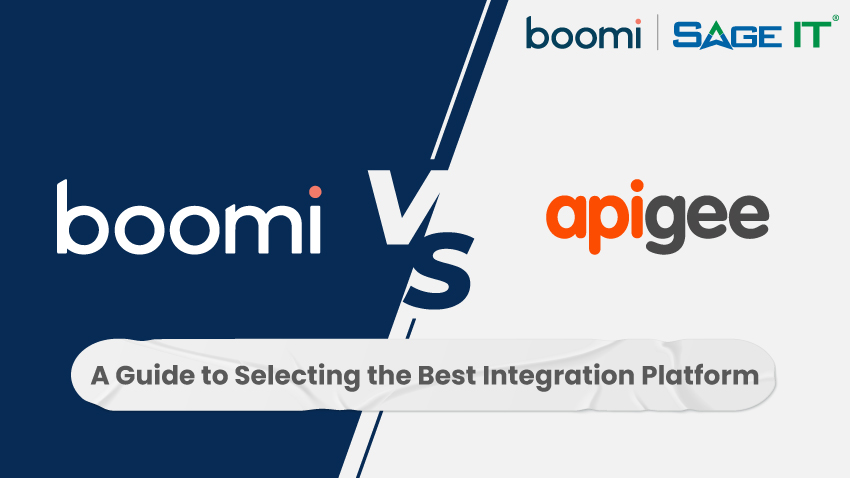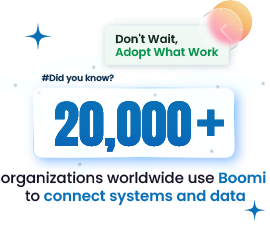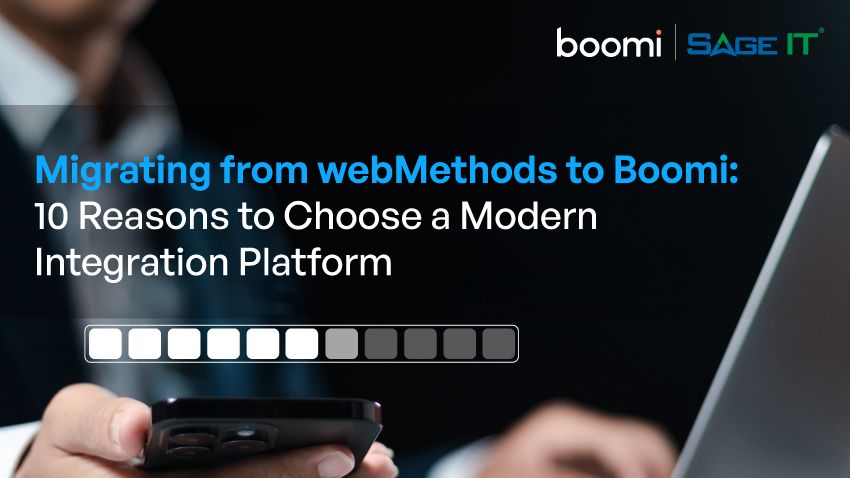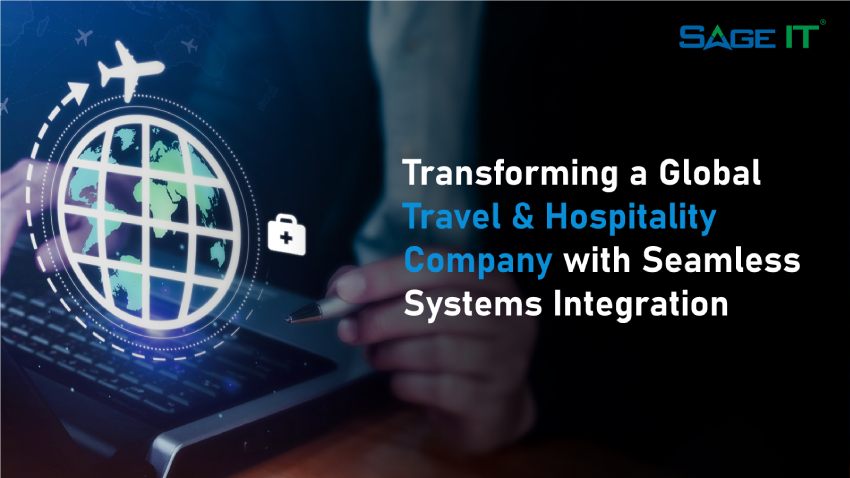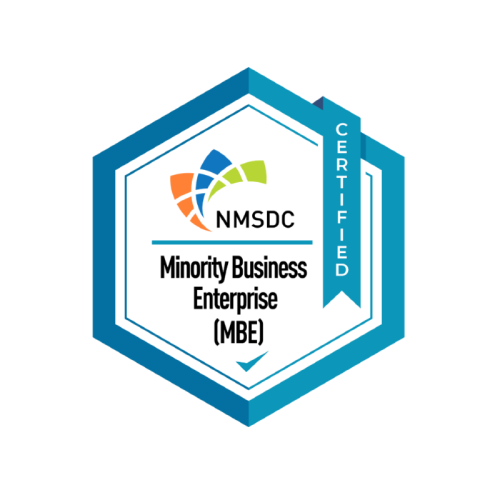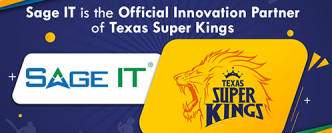Most IT leaders and integration teams assume that choosing an integration platform is as simple as plugging it in and letting data flow. But in reality, the wrong choice can lead to API security risks, inefficiencies, and rising operational costs. If your business depends on scalability, automation, and long-term IT stability, selecting the right platform is more than a technical decision—it’s a strategic one.
Boomi and Apigee both offer powerful capabilities, but they serve different needs. Boomi makes integration easier with its low-code platform, helping teams connect applications quickly and automate workflows without deep coding expertise. Apigee, on the other hand, is built for API-driven businesses, offering advanced security, governance, and analytics to manage high API traffic and external developer ecosystems.
Your choice depends on how your business operates. If you need a flexible, cloud-native integration platform, Boomi keeps things simple and scalable. If API security, governance, and analytics are your top concerns, Apigee gives you more control over API traffic and monetization.
Which platform will drive your IT strategy and business growth? Let’s start with feature comparison.
Boomi vs Google Apigee API Management – Feature Comparison
Boomi specializes in low-code, fast integration, while Apigee focuses on API governance and scalability. Which one actually fits your business needs?
Key Takeaway
| Feature | Boomi (Integration-Focused) | Apigee (API Management-Focused) |
|---|---|---|
| Application & System Integration | Connects cloud & on-prem systems with pre-built connectors. | API-first model, best for exposing/managing services. |
| Data & B2B/EDI Integration | Supports EDI (X12, EDIFACT) with trading partner automation. | API-based data exchange, does not support EDI. |
| API Management | Built-in API lifecycle management. | Enterprise-grade API security, analytics, and governance. |
| Workflow Automation | Low-code automation with Boomi Flow. | No built-in workflow automation. |
| Security & Compliance | Data encryption, role-based access, compliance-driven. | OAuth, JWT, rate limiting, and API security tools. |
| Performance Optimization | Real-time data sync, error handling. | API caching, traffic control, analytics tuning. |
Detailed Comparison Between Boomi and Apigee
1. Application & System Integration: Boomi’s Full-Scale Connectivity vs. Apigee’s API-First Model
Modern enterprises don’t just rely on APIs—they need a fully integrated ecosystem where applications, databases, and cloud services work together seamlessly.
Boomi bridges the gap between cloud and on-premises systems with an extensive library of pre-built connectors and a low-code integration platform. Whether it’s ERP, CRM, or third-party SaaS tools, Boomi simplifies the integration process, ensuring that data flows without friction across all business applications.
Apigee, on the other hand, prioritizes API management over deep system connectivity. If your goal is to expose APIs and govern them at scale, Apigee is built for API-first architectures—but it lacks the native system integration depth that Boomi provides.
For companies needing end-to-end integration across all applications, Boomi is the go-to choice. If your primary focus is API governance and traffic control, Apigee is the better fit.
2. Data & B2B/EDI Integration: Boomi’s Robust EDI vs. Apigee’s API-Driven Exchange
For supply chain-heavy industries, B2B transactions, and EDI remain the backbone of commerce. A misplaced order, an incorrect invoice—these mistakes cost businesses millions in lost revenue and operational delays.
Boomi handles EDI transactions natively, supporting standards like X12 and EDIFACT while offering trading partner management to automate business transactions securely and efficiently.
Apigee, however, is built for modern API-based exchanges. If you’re looking to replace legacy EDI with API-driven data flows, Apigee is a great alternative—but it does not offer native B2B/EDI functionality like Boomi.
If you deal with B2B integrations and rely on EDI, Boomi is the clear winner. If your business is transitioning to API-based data exchange, Apigee’s API-driven model is the better long-term approach.
3. API Management: Apigee’s Enterprise-Grade Security vs. Boomi’s Unified API Approach
API security breaches can be catastrophic. Whether it’s unauthorized access, DDoS attacks, or performance bottlenecks, companies need airtight API security to protect their digital assets.
Apigee excels in API management, offering enterprise-grade OAuth integration, JWT security, and rate limiting to ensure APIs are secured, monitored, and optimized for performance. For organizations that expose APIs externally to customers, partners, or third-party developers, Apigee is the industry standard.
Boomi also provides API lifecycle management, but it’s more of a secondary feature within its integration platform. If your API management needs are mission-critical, Apigee’s dedicated governance, analytics, and security give it a clear edge.
For enterprises where API security and management are top priorities, Apigee is the best choice. For companies looking for API management as part of a broader integration strategy, Boomi gets the job done.
4. Workflow Automation: Boomi’s Low-Code Simplicity vs. Apigee’s API-Centric Model
Every IT team wants less manual work and more automation—but not all platforms make it easy.
Boomi simplifies workflow automation with its drag-and-drop process builder, allowing businesses to automate complex workflows across multiple applications without coding. Whether it’s HR onboarding, sales pipeline updates, or financial reconciliation, Boomi eliminates repetitive tasks and keeps processes running smoothly.
Apigee, however, does not include native workflow automation. If your business requires automated workflows, you’ll need to integrate Apigee with other tools to orchestrate end-to-end processes.
For businesses prioritizing workflow automation alongside integration, Boomi offers an easier path. Apigee is best suited for API governance but lacks automation features.
5. Security & Compliance: Boomi’s Data Protection vs. Apigee’s API Fortification
With cyberattacks on the rise, businesses must lock down their data, APIs, and integrations.
Apigee is purpose-built for API security, offering OAuth, JWT, DoS attack prevention, and traffic throttling. For companies managing large-scale API ecosystems, security is built into every layer of Apigee’s architecture.
Boomi, meanwhile, focuses on securing data within integrations, offering role-based access controls, encryption, and compliance with global security standards.
If your priority is API security and governance, Apigee is the better option. If securing data integrations is your main focus, Boomi’s compliance-driven security measures are a better fit.
5. Security & Compliance: Boomi’s Data Protection vs. Apigee’s API Fortification
With cyberattacks on the rise, businesses must lock down their data, APIs, and integrations.
Apigee is purpose-built for API security, offering OAuth, JWT, DoS attack prevention, and traffic throttling. For companies managing large-scale API ecosystems, security is built into every layer of Apigee’s architecture.
Boomi, meanwhile, focuses on securing data within integrations, offering role-based access controls, encryption, and compliance with global security standards.
If your priority is API security and governance, Apigee is the better option. If securing data integrations is your main focus, Boomi’s compliance-driven security measures are a better fit.
6. Performance Optimization: Apigee’s High-Speed API Processing vs. Boomi’s Real-Time Data Sync
High-volume digital transactions demand peak performance—whether it’s e-commerce, real-time banking, or global logistics.
Apigee ensures APIs run smoothly under heavy traffic with features like API caching, load balancing, and analytics-based tuning. If your APIs power high-traffic services, Apigee helps prevent slowdowns and outages.
Boomi, on the other hand, focuses on data synchronization, ensuring real-time data availability across connected applications. If your priority is keeping CRM, ERP, and other systems in sync, Boomi’s real-time data movement is critical.
For high-performance API environments, Apigee is the leader. For businesses prioritizing seamless data synchronization across applications, Boomi is the better choice.
Factors to Compare Before Choosing Between Boomi and Apigee
Scalability
Boomi
Businesses don’t operate at a steady pace—peak seasons, sudden growth, and evolving tech stacks demand a system that scales effortlessly. Boomi makes it easy to add new endpoints, integrate additional applications, and handle more data volume on demand. It’s built for companies that experience transaction bursts, whether from seasonal traffic spikes or business expansion.
Apigee
If your business relies on high-traffic APIs, Apigee is designed for that. It supports advanced routing, multi-region deployment, and API monetization models, making it perfect for digital platforms, SaaS products, and enterprises with fluctuating API usage. Whether you’re scaling a customer-facing API or managing a partner ecosystem, Apigee ensures high availability and performance.
Boomi works best for businesses needing enterprise-wide integration across multiple applications. Apigee is ideal for handling massive API traffic surges and monetizing digital products.
Ease of Use
Boomi
Integration doesn’t have to be intimidating. Boomi’s visual drag-and-drop interface helps businesses deploy integrations quickly, without needing a team of specialized engineers. It’s built for a self-service culture, allowing IT teams and even non-technical users to manage data flows, system syncs, and automation processes.
Apigee
Apigee gives developers complete control over their APIs. Teams that prefer writing custom scripts, setting security policies, and fine-tuning API performance will find Apigee a powerful tool. It allows them to configure API proxies, enforce security layers, and analyze traffic patterns in detail. Since it requires API expertise, Apigee is best suited for developer-driven organizations that need flexibility and customization at every level.
Boomi is the best choice for companies that want fast, intuitive integration without heavy coding. Apigee is better for API-first teams that need flexibility and control over their API ecosystem.
Monitoring & Analytics
Boomi
Downtime, failed data transfers, or broken integrations can cost businesses time and money. Boomi’s real-time monitoring and workflow intelligence ensure that teams receive immediate alerts if a connection fails or a mapping breaks. The platform provides clear visibility into data flows, helping businesses spot and fix integration issues before they impact operations.
Apigee
APIs power customer experiences, partner interactions, and digital products—so tracking API usage is essential. Apigee provides deep insights into API traffic, showing who’s calling your APIs, how often, and from where. Security dashboards help detect anomalies, unauthorized access attempts, or unusual traffic patterns, which is critical for businesses exposing APIs to the public or partners.
Boomi is the best choice if your focus is on tracking integration performance across systems. Apigee excels in API security and usage monitoring, making it ideal for API-driven businesses.
Pricing Model
Boomi
Boomi keeps pricing simple and predictable, so businesses can plan their costs with confidence. It offers monthly and yearly subscription plans, with pricing based on the number of integrations, connectors, and data volume. This flexibility allows companies to start with what they need and scale as they grow—without unexpected costs. Small teams can start with affordable plans and scale up as integration needs grow.
Apigee
API traffic can fluctuate depending on usage, so Apigee follows a pay-as-you-go model for API calls. This is great for businesses starting small but planning to scale, as they only pay for what they use. For enterprises with consistent, high API traffic, Apigee also offers subscription tiers with lower per-call costs.
Boomi is the better fit for organizations looking for predictable pricing and a clear scaling model. Apigee is ideal for businesses that expect variable API traffic and need flexible pricing.
How Businesses Use Boomi & Apigee
How Boomi Supports Business Growth
How Apigee Powers API-Driven Businesses
Boomi vs. Google Apigee API Management: What Real Users Are Saying
Boomi (4.4/5 – G2)
What Users Love About Boomi
Easy-to-Use, Low-Code Platform
Boomi makes integration simple with its drag-and-drop interface, so teams don’t need deep technical expertise.
“Boomi’s UI makes integration straightforward, even for those without coding experience.”
“I don’t need to be an engineer to automate processes with Boomi.”
Apigee
If your business relies on high-traffic APIs, Apigee is designed for that. It supports advanced routing, multi-region deployment, and API monetization models, making it perfect for digital platforms, SaaS products, and enterprises with fluctuating API usage. Whether you’re scaling a customer-facing API or managing a partner ecosystem, Apigee ensures high availability and performance.
Boomi works best for businesses needing enterprise-wide integration across multiple applications. Apigee is ideal for handling massive API traffic surges and monetizing digital products.
Pre-Built Connectors That Save Time
Boomi offers hundreds of pre-built connectors, making it easy to link apps like Salesforce, AWS, and SAP.
“We connected Salesforce and AWS in hours instead of weeks. The pre-built connectors handled most of the work.”
“The SAP connector saved us from unnecessary development—it just works.”
Scales Well for Enterprise Deployments
Boomi provides detailed training materials, forums, and documentation, so users find solutions easily.
“Their learning portal provides clear guidance—I rarely need to contact support.”
“Customer support is knowledgeable, but I find most answers in their documentation.”
Strong Learning Resources & Support
Boomi provides detailed training materials, forums, and documentation, so users find solutions easily.
“Their learning portal provides clear guidance—I rarely need to contact support.”
“Customer support is knowledgeable, but I find most answers in their documentation.”
Where Boomi Users Face Challenges
Support Response Times Could Improve
Boomi’s support team is helpful, but some users feel response times could be faster.
“Support is great, but waiting a full day for a response can be frustrating during critical issues.”
Debugging and Version Control Need Refinement
Large integration projects require better debugging tools to speed up issue resolution.
“Boomi needs better version control. Tracking down errors takes longer than it should.”
Performance Tweaks for Large Data Loads
Boomi handles high-volume data processing, but fine-tuning settings improves efficiency.
“We adjusted memory settings to keep things running at peak performance.”
Apigee (4.3/5 – G2)
What Users Love About Apigee
Built for API-First Businesses
Apigee gives companies full lifecycle API management, strengthening security and governance.
“Apigee strengthens API security and governance—it’s a must-have for API-driven businesses.”
“It streamlines API development from design to deployment.”
Handles High API Traffic Without Downtime
Apigee manages heavy API loads without performance issues.
“No performance issues, even with massive API traffic.”
“Apigee scales reliably, so we don’t worry about downtime.”
Enterprise-Grade Security & Compliance
Businesses trust Apigee for its comprehensive API security and compliance features.
“We needed a secure API gateway, and Apigee delivered.”
“Apigee gives us complete control over API security without additional configurations.”
Seamless Google Cloud Integration
As a Google Cloud-native platform, Apigee integrates easily with GCP services.
“We use GCP, so Apigee’s built-in integrations made it the right fit for our stack.”
“If you already use Google’s ecosystem, Apigee integrates smoothly.”
Where Apigee Users Face Challenges
Learning Curve for New Users
Apigee offers powerful features, but new users need time to master them.
“Once you get comfortable, Apigee is great. But the learning process takes effort.”
On-Prem Installation Requires More Effort
Deploying Apigee outside of Google Cloud takes additional setup.
“Setting it up on-prem wasn’t as smooth as we expected.”
Limited Support for Some Programming Languages
Apigee supports multiple languages, but not all natively.
“I’d love to see stronger support for Python.”
UI Needs an Update
Some users feel Apigee’s interface looks outdated compared to newer platforms.
“Great functionality, but the UI could use a refresh—it feels clunky.”
Boomi vs. MuleSoft vs. Apigee: Which One Fits Your Business Best?
Throughout this comparison, Boomi and Apigee have demonstrated their unique strengths, but the right choice depends on your organization’s priorities.
Key Takeaway
Throughout this comparison, Boomi and Apigee have demonstrated their unique strengths, but the right choice depends on your organization’s priorities.
Choose Boomi if:
Choose Apigee if:
What’s our Opinion?
Integration failures and API downtimes cost businesses time, revenue, and customer trust. Boomi offers real-time workflow monitoring, providing instant alerts when a connection fails or a data flow breaks. Apigee, while strong in API analytics, lacks the same depth of workflow and system monitoring for enterprise-wide integration health.
Your next step? Gain full visibility into your integrations and workflows with Boomi’s advanced monitoring tools.
But to get the most out of it, you need a solid implementation plan tailored to your business needs. Our Boomi implementation services (Certified Boomi Partner) help enterprises set up real-time alerts, proactive error handling, and end-to-end performance tracking.
